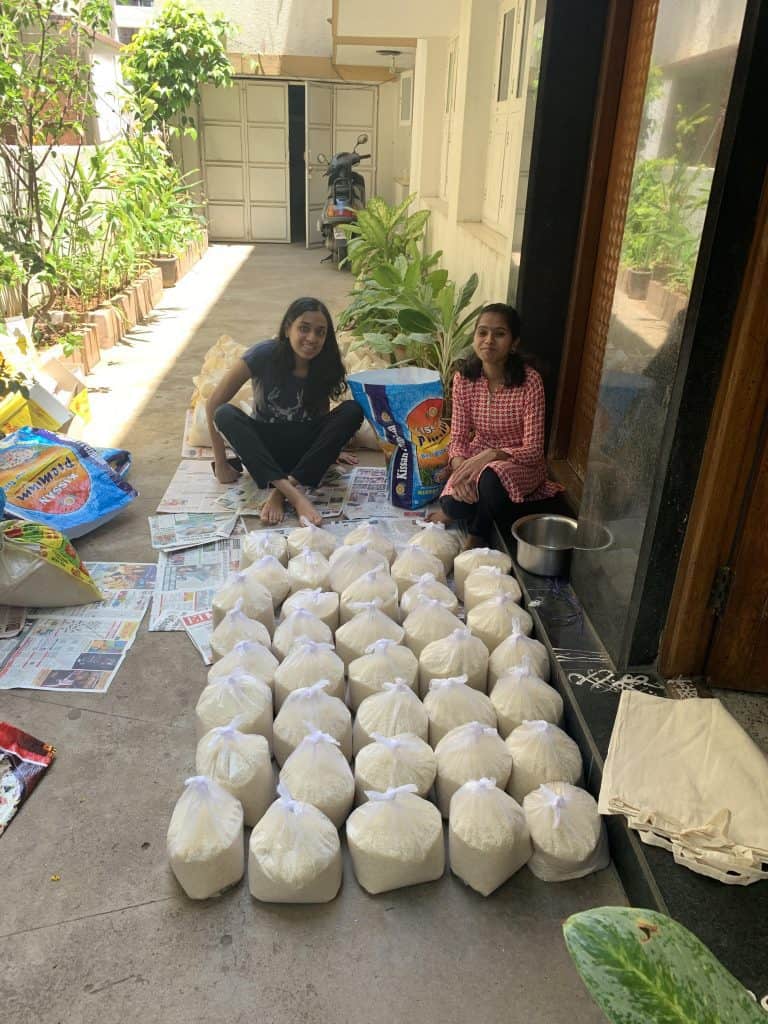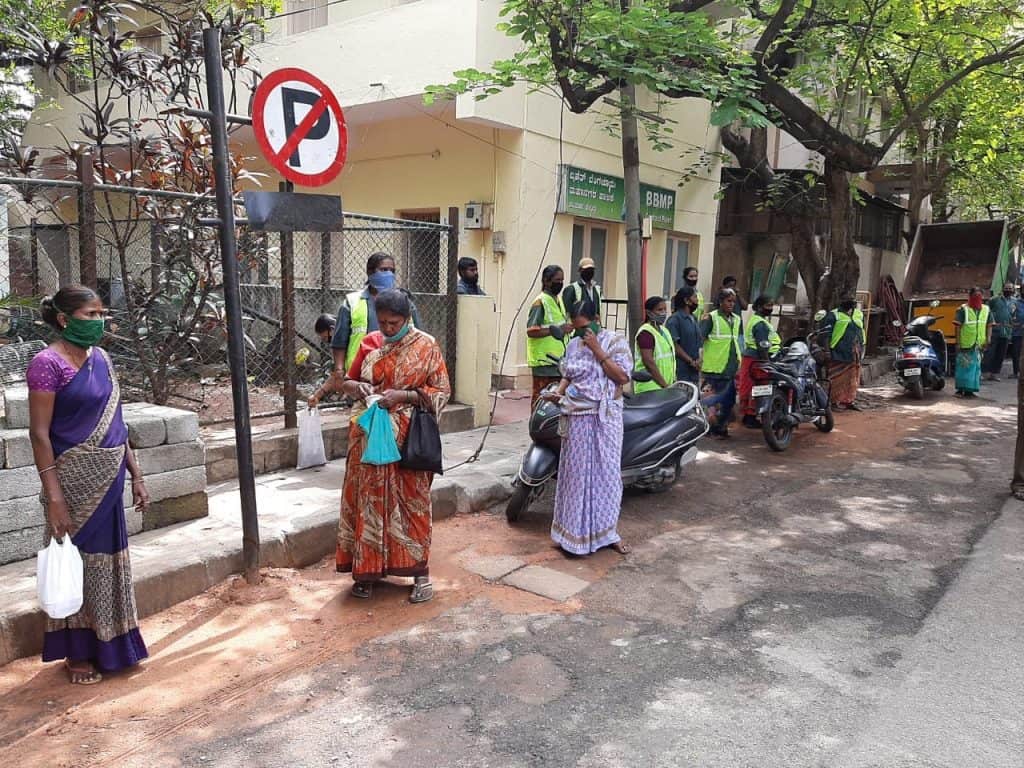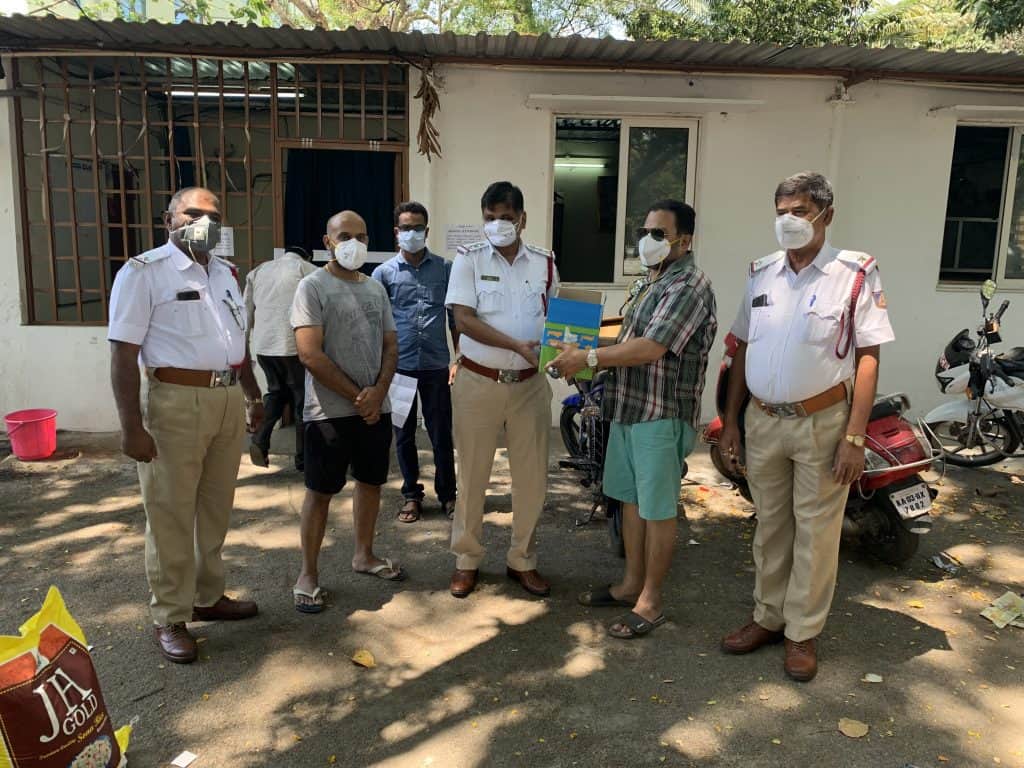In this series, individuals, citizen groups and RWAs explain how they have dealt with the COVID-19 crisis in a constructive manner. In the sixth part of the series, a resident of Vasanth Nagar describes the measures his RWA took.
It was two days into the nationwide lockdown when Muniratna, a milkman, mentioned to one of our core team members, “Sir, what about daily wagers in the area? They can’t go anywhere, how will they survive?”
Muniratna’s question got this VRWA core team member thinking. He and his family decided to initiate their own small pilot effort to test the waters and learn. They packed 35 bags with essential groceries such as rice, dal, rava, salt and cooking oil. One bag of groceries is enough for a family of four to manage for about five days. Each bag comprised:
- 3 kgs of rice
- 1 kg of toor dal
- 1kg rava
- 1 litre cooking oil
- 1 kg salt
At the end of the day, the family posted about this on the association’s WhatsApp group. We didn’t see coming the kind of contributions that would flow in. We soon had enough financial commitment for about 1,000 similar grocery bags for distribution.
This response gave the core team a much-needed impetus, broad direction and a process by which we could attempt to scale up. The objective was clear – strive to ensure that no one in our area, Vasanth Nagar, goes hungry during the lockdown.
From there, it did not take long for the core group to figure out the ‘How’ of implementing this initiative. We had a quick online meeting and decided to divide the efforts into three broad areas:
- Procurement
- Packaging and logistics
- Beneficiary identification and last-mile distribution
The challenge was to execute each of the above steps while ensuring physical distancing.
Collaborating with the corporator
What made the job easier for the team was agreeing to assign the third step to our Corporator, Mr Sampath, since he was best equipped to identify, organise and carry out the last-mile distribution. He gives us a heads-up every day on the number of packages needed for the next day.
This has enabled the other two teams, Procurement and Packing & Logistics, to execute their work efficiently.
Every morning, the procurement team scans grocery stores and kirana shops in the area for checking available stock, sourcing, bargaining, collating and directing supplies from the stores directly to the multiple packing locations. Residents offered their homes – mostly independent houses – as packaging locations.
The ‘Spoke and Hub’ model
For packing and logistics, with physical distancing restrictions in place, we adopted a ‘Spoke and Hub’ model. As soon as a grocery item arrives at each residence, the family gets together to pack and then shares their completion updates on the WhatsApp group.
Once the packing is completed at multiple residences, the logistics team picks up the packages, puts them in individual bags and loads them in 4-5 cars (as storing in home garages would invite rats!). Daily, at around 6 pm, over 150 bags are kept ready for distribution the next day.

So far, more than 1200 ration bags have been distributed. In addition, 100 kg rice and 25 kg dal were donated to an NGO running a home for children with mental disabilities in Kumara Park. We also helped the pourakarmikas and the police in our area by providing groceries.
VRWA volunteers providing pourakarmikas and police with grocery bags. Pic: VRWA
We are amazed at how a small step of preparing 35 grocery packages led to a movement in our community. Around 75 residents wholeheartedly came forward to contribute and help. It is the association’s endeavour to continue this till the lockdown ends.

